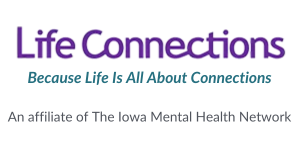There is a lot of knowledge about the ways that trauma affects the brain, but what does all of it really mean? We often enter a state of dysregulation because our brains perceive something as a threat. Our brain enters fight, flight, or freeze mode (3 Fs), and we stop making logical decisions and start trying to deal with the threat using the 3 Fs. This can sometimes be at the root of negative behaviors we see in children. On the other hand, some adult-child relationships (even adult-adult relationships… but we will save that for another day) are beset with repeated conflicts that do not always stem solely from states of dysregulation; they might even be the trigger to dysregulation. I want to pay homage to trauma-informed care by acknowledging the importance of focusing on regulation first, while also talking about how to improve maladaptive patterns within the relationship with a child.
Bruce Perry, a psychiatrist and Senior Fellow of the Child Trauma Academy, coined the phrase regulate-relate-reason, or the 3 Rs. The 3 Rs complement the 3 Fs beautifully. Some common signs that your child has entered a dysregulated state (3 Fs) are increased rate of breathing, crying, “shutting down,” clenched fists, tense muscles, and aggressive behaviors. When your child is in fight, flight, or freeze mode, it’s time to implement regulate-relate-reason (3Rs). What this means is that your first order of business is to help your child regulate themselves. Talk to a licensed mental health professional about learning tools to co-regulate with your child and for your child to learn to independently self-regulate. After your child is regulated, you can work on relating to them. This can mean that you validate their feelings, apologize if you need to, or talk about something else for a few minutes. This is your opportunity to repair any damage that may have been done to the relationship. The final step is to reason with your child. If you are implementing consequences for their behavior, this is the time to do it.
Okay, so the Fs and Rs require a lot of learning and practice, but they are vital to managing behaviors in your home or at school. I mentioned that the “relate” phase of the 3 Rs is a good time to make repairs to the relationship, if needed. Now I want to talk about the relationship and a few common patterns in relationships as well as some tools to try to work through those problematic patterns.
Power Struggle
This is when the caretaker and child enter a tug of war over an issue. For example… Mom tells Cindy to pick up her shoes. Cindy refuses. Mom tells Cindy to pick her shoes up this instant or she will lose her tablet for the rest of the night. Cindy becomes angry and doubles down. Cindy says “I don’t care, I don’t like my tablet anyway!” She stomps off to her room, and the shoes are still on the floor. Both parties lose the tug of war and are angry with each other.
A tool to try… Some people call this tool forced choice. Acknowledge that you can’t physically force Cindy to pick up her shoes, and in fact, you’re not going to try to force her. This disarms the power struggle. You choose not to pick up the other end of the rope to play tug of war. Give Cindy some options. This tool is called forced choice because option 2 is designed to be less pleasant than option 1, which is to follow the original direction. “Cindy, I’ve asked you to pick up your shoes. Following my direction is your choice. You have a couple options. You can pick up your shoes like I asked, or I will pick up your shoes, and you will lose your tablet until you wash, dry, and fold 2 loads of laundry. You can clean now or clean later.” If Cindy is a professionally defiant child, she might dig in her heels and go with option 2. All you have to do at that point is follow through on the consequences of option 2. You picked up the shoes, but Cindy still learned a lesson about cleaning up. Consistency with this tool over time will likely result in Cindy following the original direction.
Reactive Parenting
When I say reactive parenting, what I am referring to are those snap judgements in the heat of the moment. These are the times when we know a consequence or a tool needs to be used, but we are angry/upset/scared, and we implement things too quickly and to the extreme. For example, you tell Bobby to put his phone away for the third time, and he doesn’t even acknowledge that you’re talking to him. You feel the anger swelling, and you say, “That’s it! You’ve lost internet privileges for a month!”
I think we can all agree that enforcing that consequence will require a lot of work from the parent. Further, Bobby might not feel a lot of motivation to behave well for the next 3 weeks when earning back the only privilege he cares about seems so far away. My recommendation for avoiding this kind of reactivity is to take a step back before you decide how to approach a misbehavior. Tell the child, “This behavior is not acceptable. I need to take a few minutes to decide how I am going to handle this.” Go plan how to respond not react. Follow the following rules: 1. Always plan and communicate how the child can earn the privilege back (this could be as simple as being well-behaved for the rest of the night). 2. Try to keep the consequence short enough that the child doesn’t get discouraged. For example, younger children (4-7ish) won’t really associate a multi-day consequence with a behavior that happened more than a day ago. For a child as young as 4, losing privilege for an hour or two is a better duration.
Talk with your mental health professional about having family sessions to help identify other problematic patterns that might be affecting your relationship with your child.
Courtney Hickson, LMSW, School-Based Therapist
Because Life is All About Connections
Life Connections provides in-home Behavioral Health Intervention services, Therapy services, autism (ABA) services and Children’s Mental Health waiver services in our 13 office locations and approved schools across Iowa. Life Connections was founded in March of 2009 with the intent to serve the children and families of Cedar Rapids and surrounding cities.
Life Connections is a highly professional and caring counseling and behavioral health provider. We offer a wide array of services to treat mental health issues including Applied Behavior Analysis Services, Behavioral Health Intervention Services, mental health therapy, school-based therapy programs, and substance use treatment.
For more information, please call 319-409-6922.
Resources:
- National Suicide Prevention Hotline 800-273-8255
- Crisis Text line text to 741741
- The Trevor Project – for LGBTQ+ young adult community 866-488-7386
- Rape, Abuse, and Incest National Network 800-656-4673
Start Your Services
Start Mental & Behavioral Health Services with Life Connections | Because life is all about connections.

